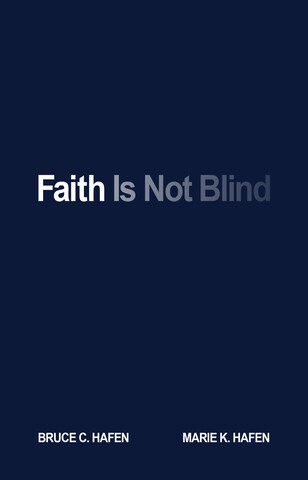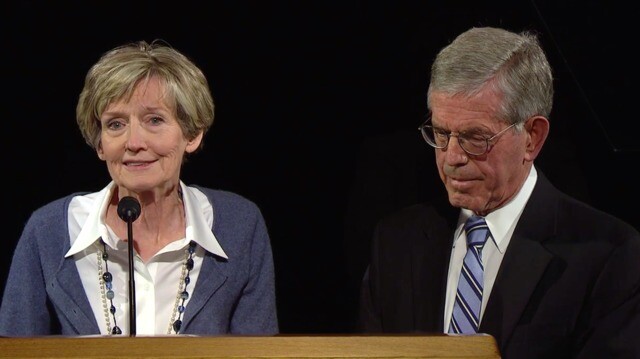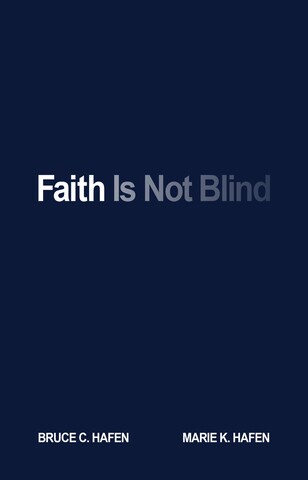In the two most recent episodes of All In, host Erin Hallstrom sits down with Elder Bruce C. Hafen, General Authority emeritus, and his wife, Marie K. Hafen, to discuss their new book, Faith Is Not Blind. The book offers readers “a pattern for how to think about your questions and how, through grappling with them, to nourish your faith.”
The book introduces three stages of faith: “Stage One is the simplicity on this side of complexity, innocent and untested. Stage Two is complexity, the gap between the real and the ideal, where we struggle with conflicts and uncertainty. Stage Three is simplicity beyond complexity, a settled and informed perspective that has been tempered and tested by time and experience.”
In the excerpt of the podcast below, Elder Bruce C. Hafen, shares his own experience with feeling like he was unable to say he “knew the Church was true.” Listen to part one of the two-part interview here.
Note: This excerpt has been edited for length and clarity.
BH: For me, I grew up in Saint George—a very strong Latter-day Saint community. I was in a wonderful home with Latter-day Saint parents, married in the temple, we talked about the gospel. When I was 19, I stood at the pulpit for my missionary farewell, and I simply could not bring myself to say I knew the gospel was true. I was kind of stuck on the difference between knowing and believing, and I knew some people expected me to say I know, but I just didn’t understand how people could know. But I believed deeply, and rather than apologizing for that—our interaction with our kids, or I’ve talked this way to missionaries when we’ve visited missionaries and zone conferences, I’ve told them that experience and I’ve told them that Alma 32 was kind of my little go-to personal Bible because it taught me the proper process, and it’s similar to the process we describe in this book. Faith isn’t blind, it’s a growth process. You plant a seed and it grows. And Alma said, ‘You cannot know of their surety at first,’ referring to his words, but here’s what you do and then, as you see all that he describes in Alma 32, this process is natural. It faces adversity, and he talks about nurturing the seed, the little sapling, when the sun is burning hot, lest it wither. And I could understand that—that has been my experience. So now, at this stage in my life, when I can say to those missionaries or to our kids, ‘I know the gospel is true,’ I know it by experience, not because I was saying what I thought I was supposed to say. My experience confirms, including the hard things, and you come out of the hard things knowing things that you couldn’t have known if you hadn’t gone through them. I think of Moroni’s words, ‘You receive no witness until after the trial of your faith.’ So the trials are okay, and when you see that as part of the natural process, I think people can understand that. It makes sense.
MH: Just to see them as part of the whole process and an opportunity.
BH: Yeah, so you’re not afraid hard things, of questions, of new experiences, because you’re prepared for that. It doesn’t mean you know all the answers, but the process is natural, it’s okay. That’s part of being on the earth and learning from opposition and experiences.
Listen to part two of our conversation with the Hafens here or in the player below.
Lead image: BYUtv screenshot
We often encounter unexpected questions and complexities that can challenge our faith. Faith Is Not Blind offers fresh concepts and tools that will help readers learn from these experiences, rather than feeling disillusioned by them.
Award-winning authors Bruce and Marie Hafen draw upon a lifetime of experience in Church service, college teaching, and parenthood to help readers embrace both the spiritual and the intellectual aspects of the gospel. Their approachable tone and real-life examples acknowledge complicated gospel issues, yet clearly and gently guide readers through the steps necessary to work through complexity, develop informed testimonies, and become filled with the faith that comes from knowing God.



